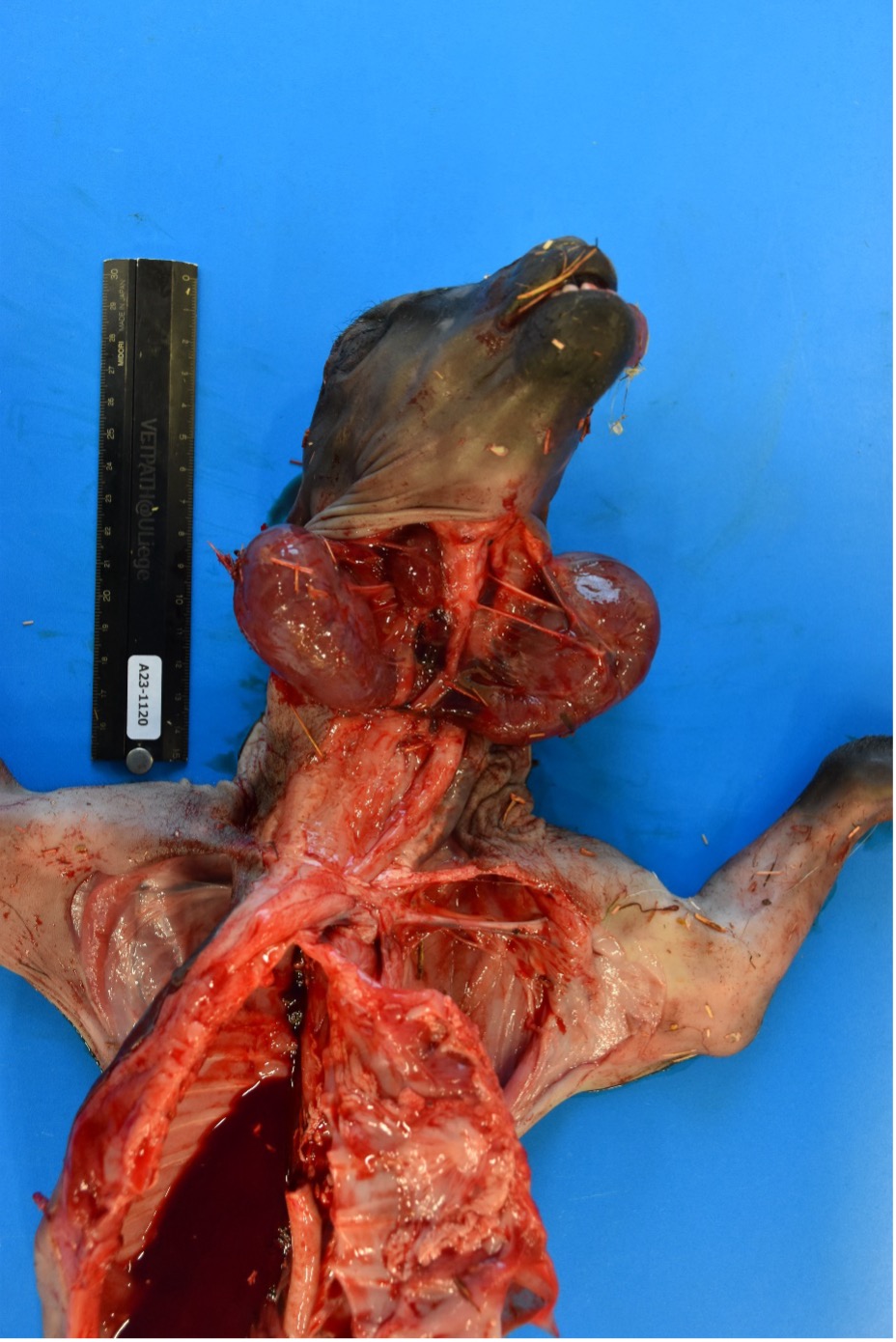Signalment: Goat, aborted foetus
MD: thyroid gland hyperplasia, congenital goitre
Comment: Thyroid gland enlargement, or goitre can be triggered by alimentary iodine deficiency, alimentary iodine excess or by the consumption of goitrogenic plants such as rape, kale and broccoli. This condition may manifest as congenital or acquired, with inheritability observed in goats, lambs, pigs, and cattle, termed as dyshormonogenic goitre. Iodine deficiency impairs the production of thyroid hormones, resulting in overstimulation of thyroid-stimulating hormone (TSH) to compensate for diminished thyroid levels. This, in turn, leads to hypothyroidism and thyroid gland hyperplasia. Clinical manifestations of hypothyroidism include hypothermia, arrhythmia, reduced cell differentiation, and impaired organ growth, often culminating in abortion and mortality. Histologically, normal thyroid architecture is lost, and thyroid follicles are irregular. Follicular cells are hyperplastic, and interfollicular parenchyma is hypercellular. Thyroid follicles contain scarce colloid substance.
References:
1. Davoodi F., Zakian A., Rocky A., Raisi A. (2022) Incidence of iodine deficiency and congenital goitre in goats and kids of Darreh Garm region, Khorramabad, Iran. Vet Med Sci. 8(1): 336–342.
2. Schiller C., Montali C., Doi S., Grollma F. (1995) Clinical and Morphologic Findings of Familial Goiter in Bongo Antelope (Tragelaplhus eurycerus) Vet Pathol 32:242-249
3. Colque-Caro LA., Acuña F., Aguirre LS., Avellaneda-Cáceres A., Barbeito CG., Signorini M, Moore DP, Micheloud JF. (2023) Characterization of lesions of nutritional congenital goitre in cattle. J Comp Pathol. 206:1-8.
Contributors: Constance de Meeûs, Madeline Romnée, Dominique Cassart, Mazarine Gérardy, Daniel Desmecht, Mutien-Marie Garigliany.
Corresponding author: constance.demeeusdargenteuil@uliege.be
Acknowledgement: ULiège, department of morphology

